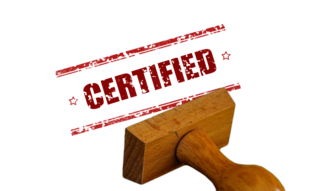Psychology
Does It Matter If Your Psychologist Is Board-Certified?
3 arguments for seeking out a board-certified psychologist.
Posted November 21, 2022 Reviewed by Devon Frye
If you are looking for a psychologist for assessment and treatment, you may have noticed that some are board-certified and others are not. What does this mean? And is it important to you as a consumer? To answer these questions, one must first differentiate between licensure and board certification.

In the U.S. and Canada, the minimum standard to practice psychology is a license issued by a state, district, or territory; psychologists may not practice without an active license. The license is based on educational requirements, documented supervised practice, and a test of general knowledge. While the written test (the Examination for Professional Practice in Psychology) is standard for all psychologists, other requirements vary from jurisdiction to jurisdiction (e.g., number of supervised clinical hours, number and type of continuing education hours to maintain the license).
Board certification, on the other hand, is not mandatory for psychologists in healthcare. It is a higher standard for the practice of psychology in specialty areas, such as clinical psychology or rehabilitation psychology. Many people take for granted that their doctors are board-certified, because almost all physicians are, yet most psychologists are not.
However, as the science of psychology has become more sophisticated, as evidence-based assessment and treatment research has honed the field, and roles and specialty areas of psychologists have expanded significantly, board certification has taken on greater significance. There are currently 16 specialty areas of psychology practice. The need for a mechanism to ensure competence in these areas is a matter of public concern.
Consequently, there are 3 primary reasons it may be important for you as a consumer to look for a board-certified psychologist.
1. Proven Expertise
Board certification is a higher standard of competence than a general license to practice psychology. The licensing process provides little to no assessment of actual skills and competence as the test is a written test that primarily tests for knowledge. Unfortunately, knowledge doesn’t always translate to competence. (We can all think of someone who knows a lot but is unable to apply that knowledge in real situations.) Board certification indicates competence through the review of work samples and an oral examination of both foundational and functional competencies.
2. Consumer Protection
Board certification is a mechanism for the public to know that specific psychologists have met rigorous standards in academic knowledge, experience, and skill demonstration in their specialty. Additionally, board certification indicates that the psychologist maintains the currency of their specialty skills through documented continuing education and practice improvement, further demonstrating their commitment to providing high-quality and effective services.
3. Tool for the Identification of Specialty Providers
Board certification is a public credential that provides evidence that your psychologist has been vetted and deemed highly skilled. If you are seeking care for a specific issue, finding a clinician who has been board-certified in that area may be especially valuable.
Just as with the practice of specialty medicine, the importance and value of the board certification credential for psychologists has been recognized. The process of board certification provides the public with greater assurances than licensure alone, that their psychologist has the knowledge, skills, and abilities to assist them.


